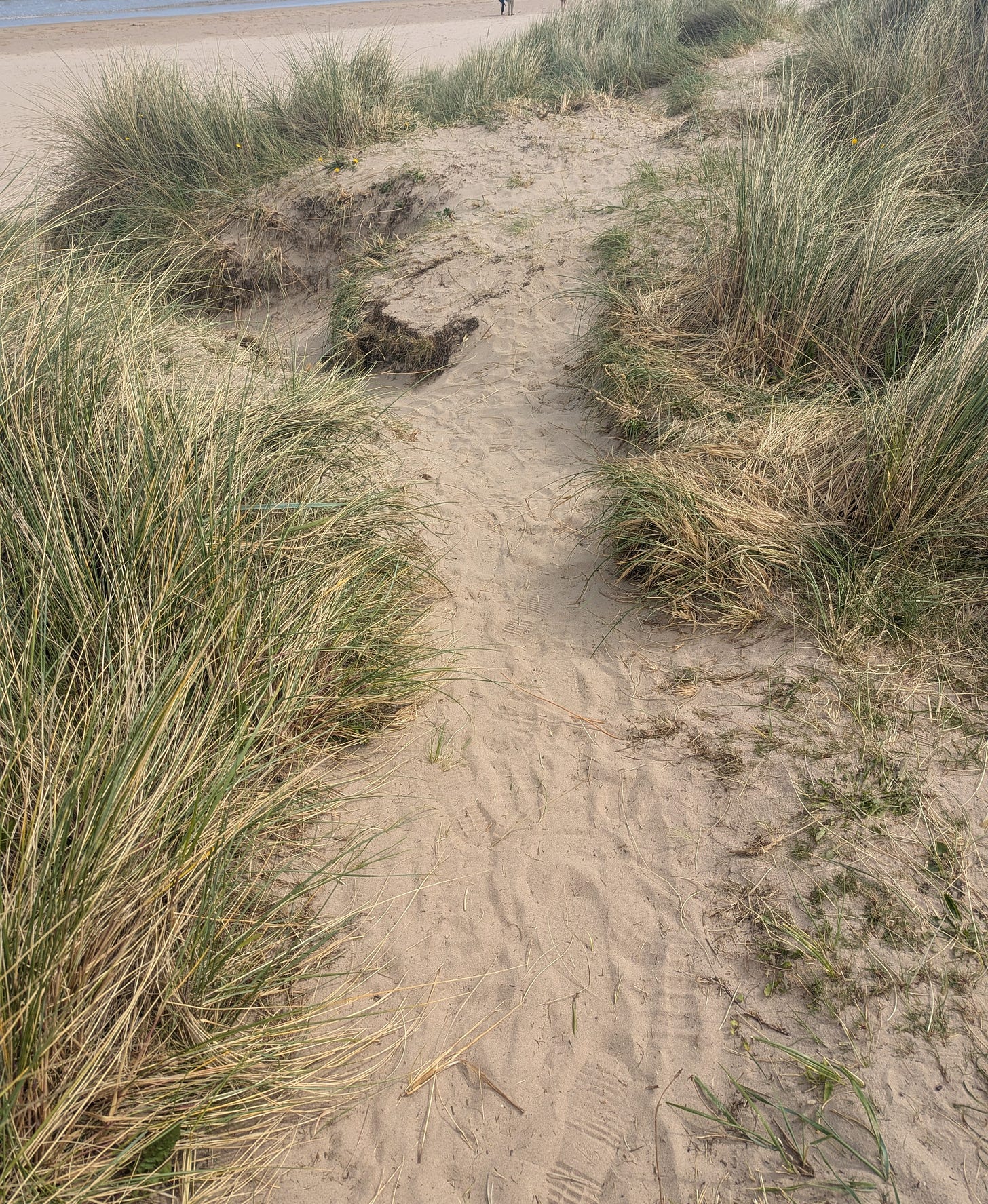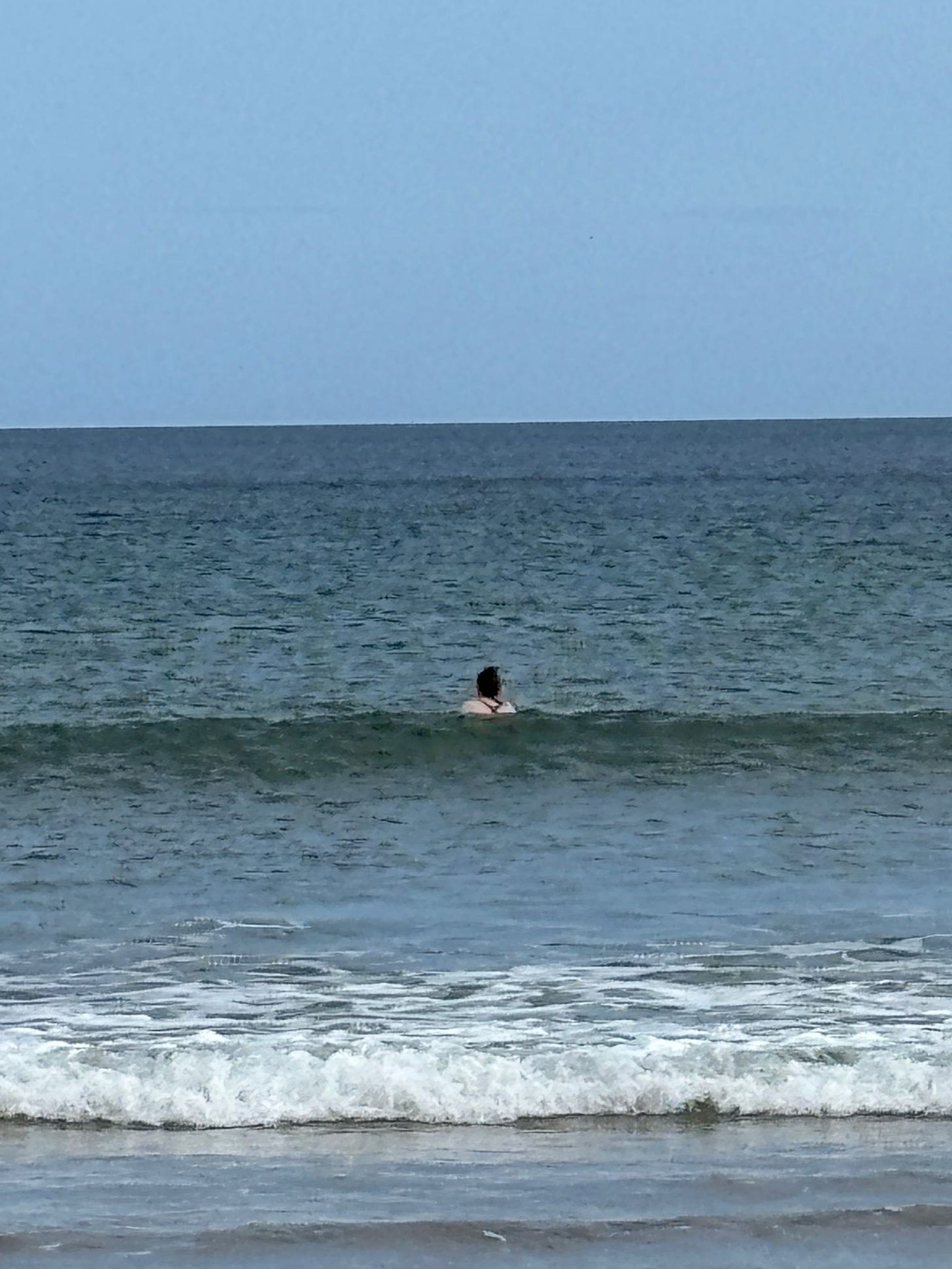On forgiveness
a conversation with my dead son
A few days ago, I walked into the North Sea and spoke to my dead son. I do this every year—on the anniversary of his death. This year marked the sixth time.
I know he doesn’t hear me. He died when he was less than a week old—extremely premature. I watched him die, everything that made him him disappearing before my eyes. I knew then and there that death was the end. He didn’t “gain his wings.” He wasn’t “an angel in the sky.” He was just dead. That was that.
Still, I waded into the water—warmer than expected—with my hands outstretched, castle and soft dunes behind me. And I talked to him.
I can’t tell you what I said; I don’t recall. I suspect I started with, “Hello, my love”—because that’s how I begin every conversation with his surviving twin brother, determined as I am to remind him how unconditionally loved he is. Of course, when he’s still rolling around at 3 a.m., I sometimes start with, “Why are you still awake?!”—but I think I can be forgiven for that.
Forgiveness finds me in those sleep-deprived moments—warming a drink in the kitchen, fetching medicines, helping my son sit, eat, and drink—while the rest of the world snoozes. My only living child is disabled, another consequence of extreme prematurity, though he stayed in the womb a few minutes longer than his brother. They are, and were, identical.
I can forgive myself for forgetting to pack a spare sling in his wheelchair basket, or for sitting on the loo engrossed in celebrity news for too long, whilst he sits downstairs waiting for me to press play on the next video. Parents of disabled children are often presented as superheroes. We are not. We are fallible. Overwhelmed. Bloody tired.
But there is something I cannot forgive. And I don’t think I ever will.
For much of the year, I simply get on with life. I’ve learned to move through grief—growing around it, breathing with it, building a world that holds real joy. And not to blow my own trumpet (though I think I’ve earned that right), I’ve done pretty damn well these past six years. I’ve travelled. I’ve taken risks. I’ve let go of what no longer serves me and embraced new friendships, new experiences.
And yet, the day after that swim, I climbed into bed and cried hard. I turned to my husband, as I’ve done before, and told him through sobs that I still don’t understand how any of this happened. I begged him to recount the night my waters broke—the throngs of grim-faced medical professionals who buzzed around my hospital bed—hoping that if I reassembled the sequence, I might finally find the thing that went wrong.
Because I know it was me. I did something.
Or I missed something. I think that might be worse.
My waters had been leaking for weeks, maybe longer. I thought it was bladder weakness. That’s what I told the midwife right before she made me drive to the bigger hospital for tests I thought were over-the-top. I was given steroids to help the babies’ lungs. I remember the head of neonatal telling us that every week the boys stayed inside this improved their chances. I nodded and smiled, not really taking it in. Not really believing what they were saying. I was only 24 weeks. My waters broke that night.
Trauma has erased large parts of that time. But on the anniversary of my son’s death, I comb through my mind, forcing myself back. I plead with my younger, unaware self to rest more. To ask more questions. To keep researching the risks of an identical twin pregnancy until I find something that makes my brow furrow and my spidey-senses tingle.
I lay the blame squarely at my own door, though no one else does. My husband reminds me about the fortnightly scans we attended religiously. That I didn’t smoke or drink or eat any suspect cheese. That I didn’t take up skydiving, or become a rollercoaster or a tree-climbing enthusiast. It was, as he puts it, just bad luck. Just the way the cookie crumbled.
I know this is true. But something else is equally true: I cannot forgive myself. And maybe that’s where I am, six years in—somewhere between peace and punishment. Between joy and guilt. I’ve built a life that holds light, but part of me is always standing in the sea, hands outstretched, speaking to a boy who can’t hear me.
For me, forgiveness isn’t a destination. It’s just the tide—ebbing, returning, shifting shape—but never quite staying gone.





Incredibly moving Elaine. Thank you for sharing your words 🙏